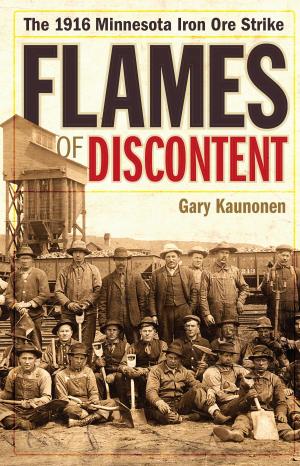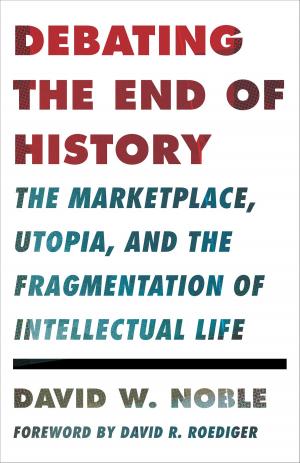Taconite Dreams
The Struggle to Sustain Mining on Minnesota’s Iron Range, 1915-2000
Nonfiction, Science & Nature, Science, Other Sciences, History, Americas, United States, Social & Cultural Studies, Social Science| Author: | Jeffrey T. Manuel | ISBN: | 9781452945453 |
| Publisher: | University of Minnesota Press | Publication: | October 12, 2015 |
| Imprint: | Univ Of Minnesota Press | Language: | English |
| Author: | Jeffrey T. Manuel |
| ISBN: | 9781452945453 |
| Publisher: | University of Minnesota Press |
| Publication: | October 12, 2015 |
| Imprint: | Univ Of Minnesota Press |
| Language: | English |
The Iron Range earned its name honestly: it was once among the world’s richest iron ore mining districts. The Iron Range propelled the U.S. steel industry in the late nineteenth century, and iron mining sustained generations in the region with work and a strong economy. But long before most other parts of the country faced the realities of industrial decline, Minnesota’s Iron Range was already striving to maintain its core industry.
In Taconite Dreams: The Struggle to Sustain Mining on Minnesota’s Iron Range, 1915–2000, Jeffrey T. Manuel examines how the region fought the dislocation that came with economic changes, technological advances, and global shifts in industrial production. On the Iron Range, efforts included the development of taconite mining as a technological fix for the drop in hematite mining. Manuel describes the Iron Range’s modern history and how the downturn was opposed by individuals, civic groups, and commercial interests. The first book dedicated to thoroughly exploring this era on the Iron Range, Taconite Dreams demonstrates how the area fit into a larger story of regions wrestling with deindustrialization in the twentieth century. The 1964 taconite amendment to Minnesota’s constitution, the bruising federal pollution lawsuit that closed a taconite plant, and the Iron Range Resources and Rehabilitation Board’s economic development policy are all discussed.
Ultimately, the resistance against economic decline is also a battle over mining’s memory and legacy, one that continues today. Manuel’s history sheds much-needed light on this important yet widely overlooked mining region as well as the impact of the past century’s struggles on the people who call it home.
The Iron Range earned its name honestly: it was once among the world’s richest iron ore mining districts. The Iron Range propelled the U.S. steel industry in the late nineteenth century, and iron mining sustained generations in the region with work and a strong economy. But long before most other parts of the country faced the realities of industrial decline, Minnesota’s Iron Range was already striving to maintain its core industry.
In Taconite Dreams: The Struggle to Sustain Mining on Minnesota’s Iron Range, 1915–2000, Jeffrey T. Manuel examines how the region fought the dislocation that came with economic changes, technological advances, and global shifts in industrial production. On the Iron Range, efforts included the development of taconite mining as a technological fix for the drop in hematite mining. Manuel describes the Iron Range’s modern history and how the downturn was opposed by individuals, civic groups, and commercial interests. The first book dedicated to thoroughly exploring this era on the Iron Range, Taconite Dreams demonstrates how the area fit into a larger story of regions wrestling with deindustrialization in the twentieth century. The 1964 taconite amendment to Minnesota’s constitution, the bruising federal pollution lawsuit that closed a taconite plant, and the Iron Range Resources and Rehabilitation Board’s economic development policy are all discussed.
Ultimately, the resistance against economic decline is also a battle over mining’s memory and legacy, one that continues today. Manuel’s history sheds much-needed light on this important yet widely overlooked mining region as well as the impact of the past century’s struggles on the people who call it home.















